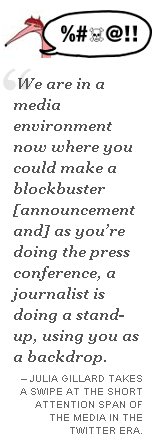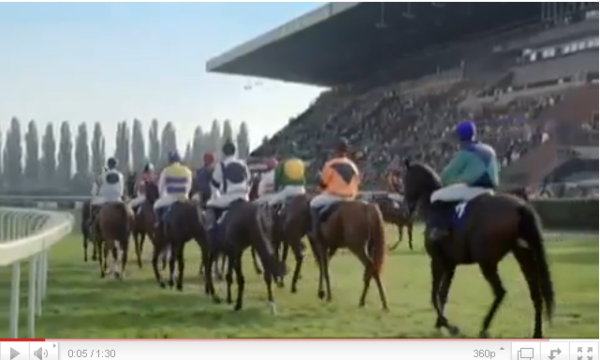Fiddling with the electoral system. I just love the way that the so-called political numbers experts invariably get things wrong when they start fiddling with the electoral system. Tasmania is the perfect example. Back in the 1950’s when the local lower house had 30 members with six from each of five electorates there invariably was a split of 15 Labor to 15 Liberals. Not that it really mattered.
Government went on quite sensibly with a rule that the side with the most votes statewide formed the government and the other provided the speaker so that votes went 15 to 14. Then the bright sparks decided that was a bit unsatisfactory and increased the numbers to 35 so that one side, they argued, would end up having a proper majority. Naturally enough the result was 17 to 17 with one independent. Move on a few years and those dreaded Greens started winning seats and even held the balance of power on occasion.
So the Liberal and Labor experts got together and reduced the membership to 25 — five members from each of the five electorates. That should fix them but the Greens refused to go away and after the last election were back as the government makers. So what do we do? Go back to 35 members. Stand-by for the next change.
Start acting seriously. The Prime Ministerial lament featured as the Crikey quote of the day this week was that television journalists no longer took announcements seriously.

Well, mademoiselle Gillard, why don’t you stop doing those casual outdoor standups and start having proper press conferences in a proper room with television cameras in a fixed position and journalists sitting down. When you act seriously the media is more likely to do the same.
Strange business this banking. In the United States yesterday the 30-year fixed-rate mortgage rate fell again to an all-time low of 4.19 percent. In Australia the Commonwealth Bank was warning customers of a likely increase in its mortgage rates because of the increased cost of funds borrowed from overseas.
Getting in the spring carnival mood. The politics of horse racing are quite beyond me. Just how does the industry keep conning governments to give it concessional treatment compared with other forms of gambling when the chief beneficiaries are a handful of international breeders? But let’s not be churlish.
It is Spring Carnival time in Melbourne with the Caulfield Cup to be run and won tomorrow. And to set the thoroughbred mood an example of how the advertising industry can sometimes be mildly amusing.
I have searched in vain for an Irish connection so I can provide a joke of a tip for the Caulfield Cup so I will fall back to hoping that my regular lunching mate Robbie Waterhouse showed his normal impeccable judgment when he selected No 15 Descarado for his wife Gai Waterhouse to purchase for her stable. That’s an impudent little tip for you!
In Hungary it’s not just thoughts. Yesterday I mentioned the opinion polling evidence of a resurgence in anti-Jewish sentiment in Germany as reported by De Spiegel. Today that magazine’s website tells of a rebirth of anti-Semitism in Hungary where the far-right Jobbik party is part of the government and Jews are being openly intimidated.
Neo-fascist thugs attacked Roma families, killing six people in a series of murders. The right-wing populists of the Fidesz Party won a two-thirds majority in the parliament, while the anti-Semitic Jobbik party captured 16.7 percent of the vote, making it the third-largest party in Hungary, next to the Socialists. Unknown vandals defiled the Holocaust Memorial with bloody pigs’ feet.
A new law granted the government direct or indirect control over about 80 percent of the media. The television channel Echo TV showed an image of Nobel laureate and Auschwitz survivor Imre Kertész together with a voiceover about rats. Civil servants can now be fired without cause. Krisztina Morvai, a member of the European Parliament for Jobbik, suggested that “liberal-Bolshevik Zionists” should start thinking about “where to flee and where to hide.”








SBS recently showed the “what if” documentary “Virtual JFK: Vietnam If JFK Had Lived.” It can still be viewed via the SBS website.
It showed clips from one or more JFK press conferences that were conducted along the lines suggested by Richard. Some of the questions were good, some were poor, and the ones from the 196o’s equivalent of News Ltd journalists, downright dopey.
But the overall tone was serious, the journalists thought about their questions and were across the policy details, and there was little of the too clever-by-half “gotcha” questioning so beloved by the Canberra press gallery.
It’s a good thing Hungary’s a civilised Western country – imagine the wider coverage, not to mention advertising space, if they were a “backward, Middle Eastern Muslim” doing this sort of thing to our more valid Christian adherence?
Re Gillard’s quote about being used as a backdrop. This immediately brings to mind ABC24’s coverage of the opening of Parliament and the first day’s procedures. We all knew Harry Jenkins was to be Speaker of the House of Reps but the Deputy Speaker’s identity was destined to be the highlight.
At approx 5pm ABC24 showed vision from the floor of the House of Reps, no audio, just pictures. Christopher Pyne was at the despatch box looking more than usually riled then he sat down and was replaced by Bronwyn Bishop who, if memory serves correctly, was furiously waving some papers in the air as she angrily addressed The Speaker. This was what we wonks had been hanging out for all day! But here’s the hitch – no audio.
Why not? Because there was an insert taking up a third of the screen ie: Annabel Crabb telling us that the House of Reps was in the process of electing a Deputy Speaker. Oh, really? The TV audience could SEE it (on that section of the screen not devoted to Crabb) but, alas, were not privy to HEARING it.
Instead, Annabel rambled on and on while Chris Uhlmann (back in the studio) continued to ask her questions about what exciting developments were happening down there in the Reps. If they’d cut Crabb and Uhlmann out of the equation Australia could have actually witnessed, LIVE, what was happening. But why let reality and breaking news get in the way of a journalist’s interpretation of it?
In the good old days journalists reported events after they happened: now they editorialise as the events are taking place – instead of giving us the raw-to-air event. Gillard is 100% correct on this.
Richard I will look forward to the PM running around looking for a suitable venue, with enough chairs to seat the MSM , plenty of microphones, TV cameras lugged around after her, every time she wishes to make a public announcement, policy release, or answer yet again the attempted gotcha ,stupid questions from the media. She doesn’t spend her entire life in parliament buildings with its suitable press room for PC’s. Perhaps if the media were to act like the professionals they are supposed to be they wouldn’t need to be seated like jerks in a room, to enable them to act like mature adults.
David – I think part of the problem is the belief that the PM has to satisfy the baying horde on an almost daily basis. I’m sure that is not the best way to either get a message across or to win votes. Prime Ministerial pronouncements should be an occasion not a regular occurrence. If I was a Gillard adviser she would be making a lot more ministerial statements in the Parliament and a lot less at stand ups in the parliamentary courtyard